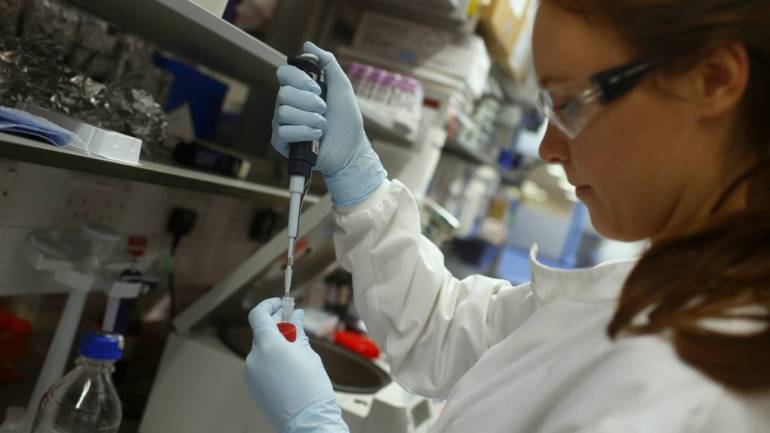Make in India? Indian companies sit on Japanese encephalitis vaccine capacities for years, as govt imports Chinese vaccine

In 2012, Indian vaccine maker Biological E launched the country’s first Japanese encephalitis (JE) vaccine under the brand name Jeev. The vaccine is to be delivered in two doses with a four-week gap.
JE is a viral disease that infects animals and humans. It is transmitted by mosquitoes and causes inflammation of the membranes around the brain.
Approximately six crore people in North and East India live in JE-endemic regions. Around 1,500 to 4,000 cases are reported every year.
Biological E tied-up with Austrian biotech company Intercell to develop, manufacture and market the vaccine in South Asia. It also built a 10 million dosage manufacturing facility to meet domestic and export demand.
Jeev was prequalified by the World Health Organisation (WHO) eligibility criteria to supply in most markets.
A year later, India’s first indigenously developed vaccine for JE hit the market.
This vaccine was a public-private collaborative effort, jointly developed by scientists at the Indian Council of Medical Research (ICMR), the National Institute of Virology (NIV) and Bharat Biotech International.
And both Biological E and Bharat Biotech were excited to corner a slice of the JE vaccine market.
During the launch, government officials even claimed the vaccine would potentially reduce India’s dependence on Chinese imports.
Up till then, the Indian government was buying the live attenuated SA14-14-2 vaccine manufactured by state-run Chengdu Institute of Biological Products (CDIBP).
Chinese challenge
But as it turned out, the Indian government continued to import JE vaccines from CDIBP through public sector undertaking HLL Lifecare.
“The Chinese company which built huge capacities has been dumping the vaccine 20-30 cents to a dollar in India per dose, we could not compete at that price,” a top executive from one of the vaccine companies mentioned in the story said.
If any public procurement is below a certain price, it is not always a healthy practice for the industry. The executive alleges the Chinese company is selling the same vaccine at little over $3 per dose in their country.
A Quartz story mentioned that CDIBP built a new facility that can make 80 million doses a year, that is almost double the capacities by the two Indian companies put together. The CDIBP vaccine is also prequalified by the WHO.
“The vaccines made by Indian companies are much safer inactivated vaccine based on cell-culture, where a dead strain is used, compared to Chinese which uses live-attenuated or live virus,” the above person said.
“With Indian government not buying our vaccines, we had to survive on export orders which are infrequent,” the executive added.
“JE is a campaign vaccination and so is not a part of the national immunisation programme. It is covered under public immunisation confined to the 181 endemic districts in the country,” said Pushpa Vijayraghavan, Director of Sathguru Management Consultants.
“The problem in JE vaccine is that there is lack of substantial market creation because campaign vaccine volume is not very high, the markets are less stable and less attractive. It is possible the Chinese may have substantial economies of scale, cross-subsidising the vaccine, or could it be a case of stockpiling to respond immediately to demand,” Vijayraghavan added.
Make in India thrust
After several representations to the government presenting their case on the basis of science and safety, the executive said the government is finally relented to buy from Indian companies, keeping the Chinese out.
The government had ordered 12 million doses of the vaccine worth Rs 120 crore -Rs 150 crore. The supplies are expected to begin from October. Both Biological E and Bharat Biotech will be supplying the vaccine.
Tenders were floated to buy 67.5 million doses of vaccine for next years, especially meant for Assam and Megalaya which are facing massive JE outbreak.
Indian companies are said to have quoted around Rs 70 per dose. Both Biological E and Bharat Biotech are vying for the supply contracts.
“We need around 12o-135 days to initiate supplies, it takes 45 days to make bulk vaccine, 45 days for internal testing and another 30-45 days testing at Central Research Institute (CRI), Kasauli, Himachal Pradesh, before the vaccine is ready to be used for immunisation,” the above executive said.
“The government will have to focus on creating and maintaining attractive markets so that the industry participants can be sustained,” Vijayraghavan added.
[“source=moneycontrol”]

